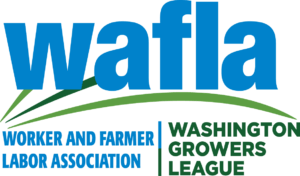Following COVID, Washington plans regs for farmworker housing

Following COVID, Washington plans regs for farmworker housing
Capital Press
Following COVID, Washington plans regs for farmworker housing
Capital Press
By Don Jenkins
May 5, 2023
Washington health and workplace regulators are proposing permanent rules to prevent infectious illnesses, not just COVID, from sweeping through farmworker housing.
The rules will require housing operators to immediately notify local health officials whenever two or more occupants have fevers, sore throats or other signs of sickness, such as vomiting or diarrhea.
WAFLA, an association that recruits foreign farmworkers who must be housed, criticized the requirement as unnecessary and unmanageable, making housing operators responsible for minding the health of adults and reporting what could be minor illnesses.
"Obviously, if you see anything dramatically wrong, you should call someone, but the housing operator doesn't necessarily know everyone's health condition at all times," WAFLA spokesman Scott Dilley said.
The rules stem from COVID. The Health and Labor and Industries departments set emergency rules in 2020 that dictated face coverings, social distancing and personal hygiene, and restricted using bunk beds.
The emergency rules expired in January. In place of the COVID rules, the departments are planning less-detailed rules, but which will be in addition to existing health and safety laws for farmworker housing.
The rules are necessary to prevent diseases from spreading, and without them, health officials would again have to write emergency rules if another disease breaks out, according to the departments.
The emergency housing rules were a source of conflict. Farmworker advocates challenged the rules as insufficient.
The rules stood up in court. A Centers for Disease Control and Prevention study found workers in housing on a Washington farm were far less likely to get COVID than co-workers who lived in the community.
Here are more details about the proposed permanent rules:
- Ventilation systems must be maintained to manufacturer's specifications. The rules include detailed instructions for the type of filters that must be used.
- Housing operators must tell occupants to close windows when "external conditions" pose a health risk.
- Housing operators must report outbreaks of illnesses caused by food or water-related illnesses. The names of sick workers must be reported to health officials.
- Symptoms that must be reported are fever, diarrhea, sore throat, vomiting, jaundice, coughing up blood, coughing that lasts for three weeks or longer, and unexpected weight loss.
- Operators must provide occupants with thermometers. A temperature of 100.4 or above will be considered a fever.
- Housing operators must follow infection-control measures required by local health officials.
- Sick workers who are isolated must be provided with a phone, access to health care, free food, and information about paid leave and compensation for missing work.
- Representatives from union, legal aid groups or "community-based advocacy" organizations must be allowed to visit farmworker housing. Visitors must check-in and submit to health screenings. The visits do not have to be connected to a health issue.
The departments will have three in-person hearings. The hearings will begin with a one-hour presentation on the rules, followed by public comments.
The hearings will be:
- 2 p.m. June 26: WSU Mount Vernon NWREC, 16650 State Route 536, Mount Vernon.
- 2 p.m. June 27: Pybus Public Market, 3 N. Worthen St., Wenatchee.
- 1 p.m. June 28: Red Lion Hotel Columbia Center, 1101 N. Columbia Center Blvd., Kennewick.
Written comments will be accepted until July 7. Comments can be sent by email to tempworkerrule@doh.wa.gov or Cynthia.Ireland@lni.wa.gov.
The earliest the rule will be adopted is Sept. 1, an L&I spokeswoman said.
